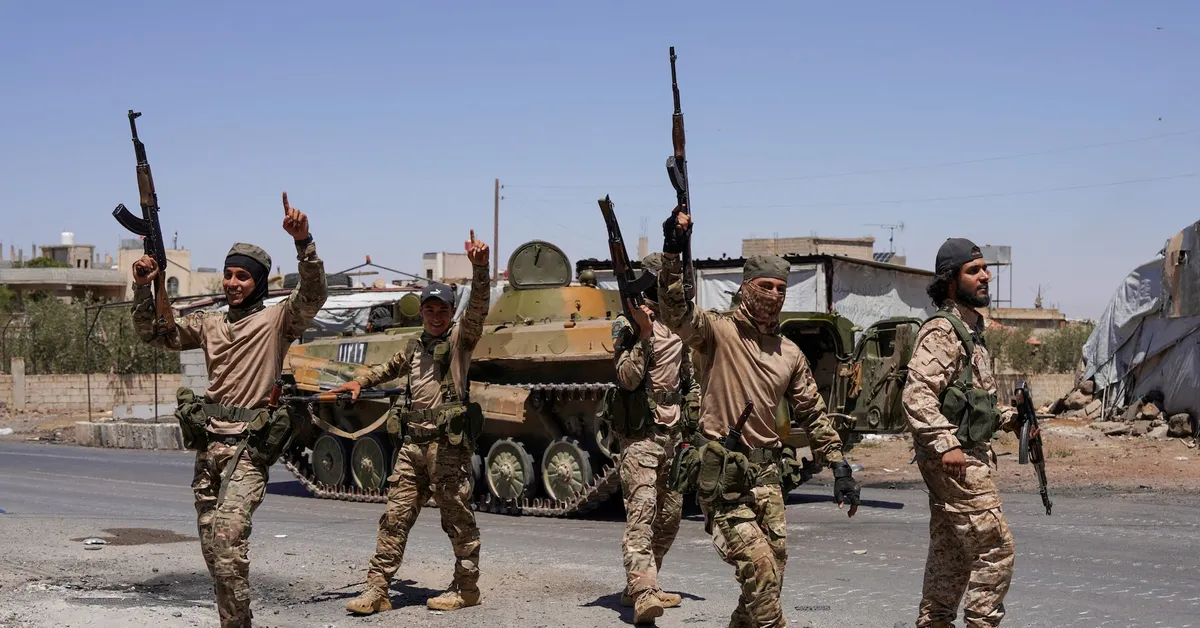
On July 18, a significant development occurred as Israel and Syria reached an agreement for a ceasefire, as announced by the U.S. envoy to Turkey. This decision comes after days of intense bloodshed in the predominantly Druze region, which has resulted in the tragic loss of over 300 lives. The violence escalated after Israel conducted airstrikes in Damascus, targeting government forces in southern Syria. Israeli officials stated that these actions were necessary to protect the Syrian Druze, a small yet influential ethnic minority that also has communities in Lebanon and Israel.
In light of the ongoing conflict, Tom Barrack, the U.S. ambassador to Turkey, urged the Druze, Bedouins, and Sunnis to cease hostilities and collaborate in building a new, unified Syrian identity. Barrack emphasized that the ceasefire agreement is supported by neighboring countries including Turkey and Jordan. Despite the announcement, there was no immediate response from the Israeli embassy in Washington or the Syrian consulate in Canada regarding the ceasefire.
The province of Sweida in southern Syria has been engulfed in violence for nearly a week, primarily due to clashes between Bedouin fighters and Druze factions. On Friday, an Israeli official confirmed that Israel would permit Syrian forces limited access to the Sweida area for a two-day period. The Syrian presidency announced plans to deploy a dedicated force to the region to restore stability and prevent further violence.
Earlier this week, the Syrian government dispatched troops to quell the fighting, but these forces have been accused of widespread violations against the Druze community. Following Israeli strikes, these troops withdrew under a truce established on Wednesday. Although Israel has historically opposed the deployment of Syrian troops in the south, it has now allowed a brief window for Syrian internal security forces to enter the Sweida district.
Israel has expressed deep concerns about Syria's new leadership, perceiving them as veiled jihadists, and has committed to protecting the Druze community in the region. In response to ongoing instability, Israel conducted further airstrikes on Sweida early Friday morning. The U.S. played a pivotal role in securing the earlier truce between government forces and Druze fighters, with the White House indicating that the ceasefire appeared to be holding.
As violence continues, reports from the Syrian Network for Human Rights revealed that at least 321 individuals have died in the fighting since Sunday, including medical personnel, women, and children. The humanitarian situation is dire, with over 500 people reported injured and hundreds of families evacuated from the city. Residents of Sweida have expressed their desperation, with reports of severe shortages of food, water, and electricity. Mudar, a local resident, lamented, “For four days, there has been no electricity, no fuel, no food, no drink, nothing at all.”
The head of the U.N. human rights office has urged Syria's interim authorities to ensure accountability for credible reports of rights violations amid the fighting, including summary executions and kidnappings. The UN refugee agency has also called for humanitarian access to be restored, as violence has severely hampered relief efforts. Reports indicate that at least 13 people were unlawfully killed in a single incident earlier this week during a family gathering in Sweida.
As the situation unfolds, the contrasting perspectives of Israel and the U.S. regarding Syria's leadership highlight the complex geopolitical dynamics in the region. With calls for unity and an urgent need for humanitarian assistance, the road to stability in southern Syria remains fraught with challenges.